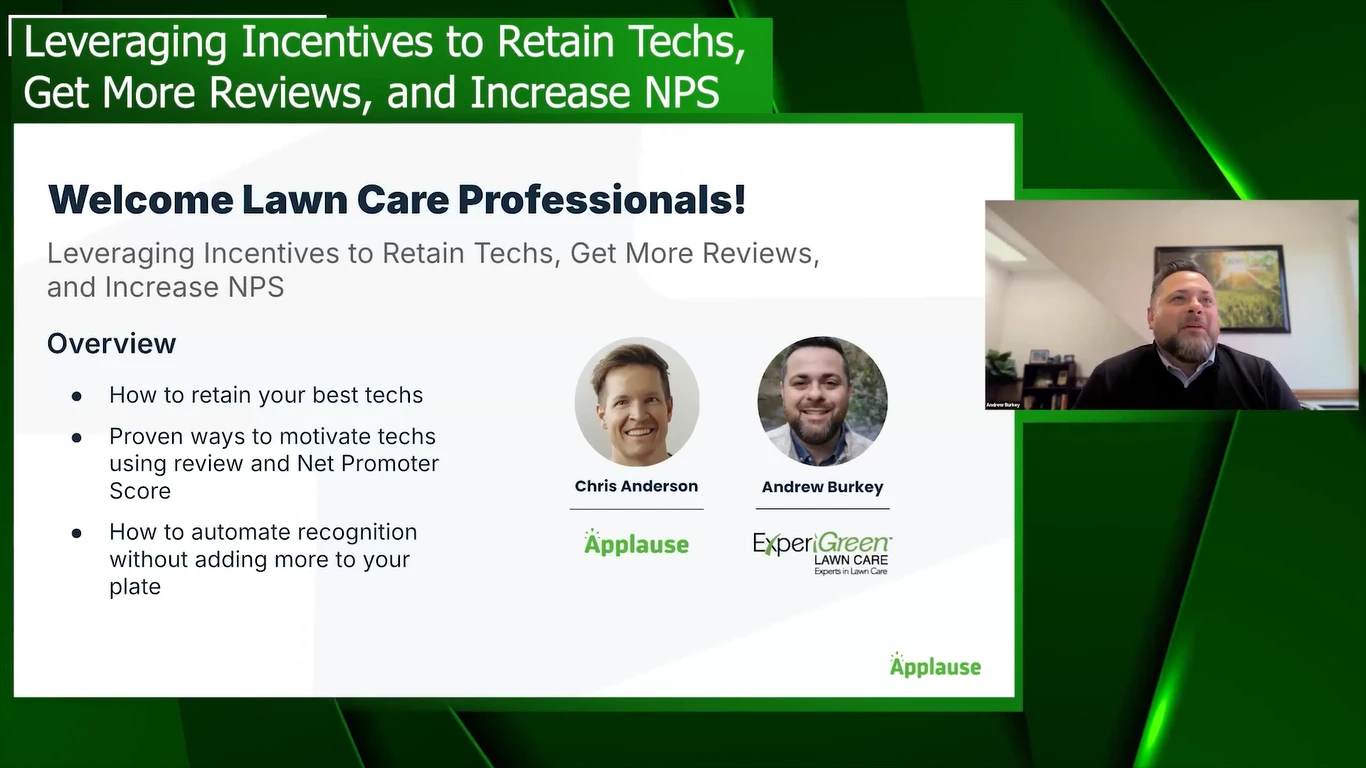Working with multi-family accounts, such as condominium associations, can be a lucrative business. However, it can also be unlike any other type of business the landscape professional serves. In fact, maintaining the account might require as much care as maintaining the property.
The homeowners’ association account, or HOA, is constantly changing. Families move in and out. Association board members change, as do property managers. For the landscape contractor this means the need to stay in tune with all of the changes in the community is paramount.
Saying that, there is not only opportunity for landscape contractors to make a profit in the HOA environment, but to make that segment an integral part of their businesses. It just takes some effort and organization.
For Mike Scian, president, Scian’s Landscaping, West Berlin, N.J., working on multi-family accounts provides an opportunity to increase business. Oftentimes, he said, one management company oversees several condominium communities, and providing first-class service at one site can provide inroads into others.
"We will do everything we can to make sure the management firm is happy with our work," Scian said. "By doing that, we also get invited to bid on its other properties, and that has become quite lucrative for us."
Scian said that about half of his company’s work comes from multi-family projects or condominium associations. "The condo communities are typically bigger jobs than the corporate offices and the sales are greater if you can build a relationship with a management firm.
"You try and develop the relationship to earn respect and loyalty," Scian advised. "Personally, I try and maintain business relationships with the upper management at property management firms so they, in turn, will talk to their assistant property managers, and suggest to them that they try us out."
At Scian’s, field foremen are also encouraged to develop relationships with on-site property managers to further foster the relationship between the two companies. "This is just one more step we use to provide the personal attention many of these accounts require," Scian added.
But some contractors don’t see the property manager as the key person on an account. "The board of directors, who we call the end-users, are more important," said Bill Trimmer, president, Professional Grounds, Springfield, Va. "The problem, however, is that most of our dealing is with the property managers. So we have to make sure we communicate with the board of directors to ensure communication doesn’t break down between the board and the property manager.
"We feel that even though we get a lot of direction from the property manager, the owners and the board of directors are the ones that sign the check and they are the ones that make the decisions on hiring and firing," Trimmer said.
But that doesn’t mean Trimmer neglects the property manager. "We have to work very closely with both the board and the property manager. We have to make sure all communication channels are open. You must do a good job communicating or you won’t be working in that community very long."
Trimmer said Professional Grounds uses a variety of methods to communicate with customers, whether they be board members, property managers or residents. "We go to annual and monthly association meetings whenever possible," he said.
Trimmer said he also writes articles for association newsletters, and, in some instances, Professional Grounds sponsors the publications. "At the very least, we read the newsletters regularly to get a feel for what is going on in the community," he said.
"Going to the meetings is important because it gives us the opportunity to ask where any potential problems might lie," Trimmer said. "And the newsletters allow us to let the residents know what we are doing and why we are doing it.
"We will write about maintenance, both from our standpoint and to offer homeowners advice on how they can maintain their individual yards," he continued. "Since we don’t service the individual properties, we can direct them on what should be done."
Trimmer estimated that 85 percent of his company’s work is on multi-family accounts. "We started out doing multi-family work 25 years ago and grew it from there, so we have a pretty good handle on what works in the industry," he said.
But not all landscape contractors are as convinced as Trimmer is about the allure of the market. Glen McKinnon, CEO of Land Maintenance, St. Louis, Mo., said his company got out of the HOA business in the mid-1980s due to the revolving doors at property managers’ offices.
"Management companies keep changing property managers," he lamented. "We would develop a relationship with a manager, get him or her to understand our ways and really start to make headway into the account. Then he or she would quit or get replaced and we would have to start all over again. So we just got out of the business altogether."
In addition to attempting to educate new property managers, McKinnon said a major stumbling block to his company’s success in the HOA business was the desire of many property managers to bring in contractors from previous projects. "They all have favorites they like working with, and more often than not we found ourselves out of a project whenever a new property manager took over," McKinnon said.
And that may be the single biggest obstacle to success in the HOA market, even for seasoned professionals who rely on relationships to help them expand their business. "Sure there are countless properties I can name where we picked up the business because a property manager we had a relationship with left one property and went to another," said Tom Freeman, district manager, OneSource Landscape and Golf Services, Orlando, Fla.
"However," he added, "I can recall more properties where as soon as a new property manager was brought in we were given a notice of termination and they brought in a company they had worked with before. So it is a double-edged sword.
"This industry has always been one based on relationships," he continued. "People will work with who they are comfortable with. So when the property manager moves on we have to pursue the new piece of business at the same time protecting the property we already have."
"We will approach the new property manager, explain what we are doing and try and keep the business," he said. "Unfortunately, often before we even get to meet the property manager there is a certified letter canceling the contract sitting in our mailbox.
"A new property manager’s goal is to come in and make an impression. The easiest way a property manager can do that is to review the contracts and get rid of the ones he perceives as being too expensive," said Freeman. "By saving money he makes himself look good to the board."
However, as often as property managers change, the residential boards change at least as often. New board members, along with their agendas, are elected regularly. With those new elections comes the need for the landscape contractor to develop a communications pipeline to the new board.
"As the board of directors changes, you have to be aware of what their agenda will be almost immediately," said Scian. "And the difficult thing is each member has his or her own idea as to what needs to be done, and those ideas are changing constantly.
"That is where the property manager can help us out," he continued. "The property manager will act as a liaison, helping you communicate to each of the board members. With condos, you are dealing with a variety of people with many ideas of what should be done and their own expectations. But they don’t always know what has been contracted to be done.
"And, if they don’t know what is in the contract, many new board members will not know what items were proposed and, subsequently, turned down," he added. "So between our record keeping, and our ability to work with the property manager, we can ensure the board has a better understanding of our role and our responsibilities."
And, Scian added, that even more than a property manager, documentation is the most important factor in dealing with HOAs.
"Documentation can be the one factor that can keep a contract from getting into trouble when it doesn’t deserve to be in trouble," he said. "With proper documentation, a property manager can go with the contractor to the board and say, ‘Remember when ABC contractor recommended you do that and you didn’t? Now you have a bigger problem because of it.
"If that property management firm is making sure that the board understands that they denied these services six months ago or the previous board voted them down, helping the contractor keep the account when things don’t always go right will go a long way," Scian said. "We know, from prior experience, just how important the management firm is."
For Freeman, operating in Florida offers a new challenge in dealing with HOAs. "Many of the board members are retired professionals, with more time on their hands than in other areas of the country," he said. "And many view these board seats as an opportunity to wield some power in their communities. They have their own beliefs and are not afraid to voice them.
"And many, just like property managers, have their own set of contractors and comfort levels," he added.
Freeman said he rarely deals with the association boards, usually limiting his exposure to the board president or the property manager. "Dealing with one person rather than the individual voices of the board is much easier," he said.
"When you work for a 300-unit property, in essence you have 300 bosses," said John Mamone, area manager, Stiles Landscape Service, Fort Lauderdale, Fla. "So we try to channel everything through the property manager. We can deal with the property manager – just one person – instead of being pulled in several different directions by several residents."
And in instances where a resident corners one of his employees on the job site? "Crew members are instructed to pass that resident to the property manager so we can deal with their problem effectively," Mamone said.
"We have had cases in the past when a person outside their house would grab one of our workers and try to have them do a little bit of gardening outside the unit," Mamone said. "We cannot allow that to happen."
"We try and minimize the contact with residents," Freeman added. "We will contact the manager and document any complaints, and we will address valid ones. But our contact will usually be a note left on the resident’s door explaining what steps were taken.
"Directing the residents to the management office is where the property manager can help," he said. "That way everyone knows what everyone else is doing."
While some contractors will attend association meetings to keep themselves abreast of community happenings, Mamone doesn’t attend HOA meetings anymore. "We used to, but found we are better off just dealing with the property manager and allowing him to provide us with the board’s requests."
And despite the changing face of property managers, "We are very fortunate in that we have strong relationships with several large property management firms."
Is there one key to managing these accounts successfully? Trimmer thinks so. "Communication," he said. "The key to managing this work is communication with the customers. If you tell them you will deliver X, Y and Z, you had better deliver X, Y and Z. There are 500 people who are, in essence, your bosses. Not all of them will want you to do what you are doing. But if you sell them something, you had better deliver what you sell and even exceed their expectations.
"There is money to be made in this segment, but it has to be managed properly," Trimmer added.
The author is a freelance writer based in Gahanna, Ohio.
Explore the November 1999 Issue
Check out more from this issue and find your next story to read.
Latest from Lawn & Landscape
- PERC helps debut propane direct-injection fuel system at ACT Expo 2025
- Retargeting Ads – A Secret Weapon for Growing Your Lawn Care Business
- Leading a growing company
- Project EverGreen launches Clean Air Calculator
- Rain Bird acquires smart lawn care company OtO from Toronto
- PBI-Gordon names Marvin as VP of research and development
- Mean Green rolls out Vanquish Autonomous mower
- Focal Pointe launches new podcast series





